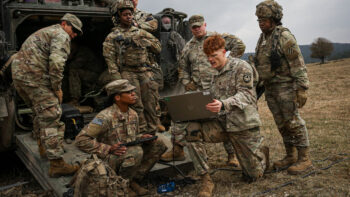 Former Defense Secretary Robert Gates has done the nation a service by writing his memoirs, “Duty: Memoirs of a Secretary at War,” providing useful insights into his thinking and approach, as well as giving us a unique look at the working styles of two very different presidents.
Former Defense Secretary Robert Gates has done the nation a service by writing his memoirs, “Duty: Memoirs of a Secretary at War,” providing useful insights into his thinking and approach, as well as giving us a unique look at the working styles of two very different presidents.
The book demonstrates why and how Gates has navigated so many bureaucratic positions and highlights the nature of bureaucratic power within the national security system. National security policy inside the Beltway is less about strategic mastery than an ability to navigate the inside baseball conflicts and to at least appear to prevail.
And preparing for winning the navigational wars is a core effort highlighted in the memoirs:
A meeting in the Situation Room was never just another gathering for me: outcomes were important, and I always had a strategy going in. More often than I liked, there were two or three such meetings a day, and all that strategizing required a lot of energy.
The memoirs highlight a man preoccupied with what he thought his mission was and bulldozing anyone who got in the way. It is a Nixonian world populated by enemies, allies, former allies, and those who understood correctly what needed to be done, and the rest.
Vice President Biden provides an interesting example of “you are great guy when you do what I want done” but if later you don’t, then you are characterized as a derogatory speed bump.
Senator Biden was a great man because he promoted MRAPs”
This directive began an all-out push to produce MRAPs, an effort that would become the first major military procurement program to go from decision to full industrial production in less than a year since World War II. Congress was fully supportive of the project. More than a month before my decision, Senator Joseph Biden on March 28 had offered an amendment, which passed 98– 0 in the Senate, providing an additional $ 1.5 billion for MRAPs and pulling forward money from the FY2008 budget into 2007.
But Vice President Biden overall is something else entirely:
“I think he has been wrong on nearly every major foreign policy and national security issue over the past four decades,” as Gates now infamously wrote.
One could ask Secretary Gates, did that include the MRAP effort?
The central policy question in assessing Gates and his legacy is as follows: Was his view of the world appropriate for what needed to be done then or for the decade in front of us?
China’s new H-20 stealth bomber ‘not really’ a concern for Pentagon, says intel official
“The thing with the H-20 is when you actually look at the system design, it’s probably nowhere near as good as US LO [low observable] platforms, particularly more advanced ones that we have coming down,” said a DoD intelligence official.



























